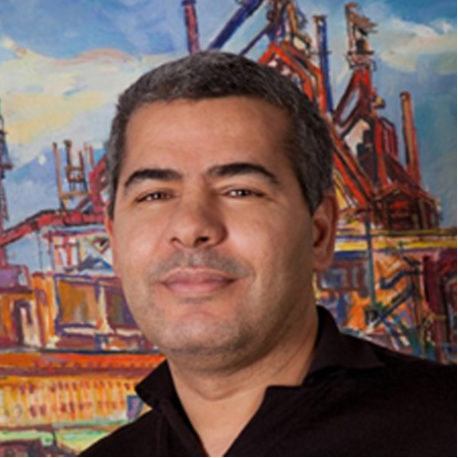Salim Belouettar

Salim Belouettar
Born in Algeria, Salim Belouettar (SB) is the head of the Structural Composites research group at Luxembourg Institute of Science and technology, Luxembourg (www.list.lu). Salim Belouettar holds a Ph.D. in Mechanics of Materials from the University of Lorraine-Metz (France, 1997) and a Habitation Degree in Mechanics form the University of Strasbourg (France, 2005). SB research work includes the development and validation of reliable models and efficient simulation tools to describe and understand engineered complex non-linear behaviours, on a wide range of spatial and temporal scales, with an emphasis on advanced composite materials and structures.
SB is the coordinator of the ongoing H2020 COMPOSELCTOR project (www.composelector.net) and the partner of many projects on materials and structural modelling. He has (co-) authored over 200 publications, of which 100 papers have been published in the past 10 years. Among the most recent papers, he has published 167 peer-reviewed articles in major international journals (about 600 citations per year), yielding an h-index of 32. SB(co-)supervised about 25 Ph.D., M.Sc. and B.Sc. theses. SB is member of the operational management board of the European Materials Modelling Council – EMMC – (http://emmc.info). SB is member of the editorial board of many scientific journals such as Composite Structures and acting as reviewer for about 20 international journals. SB is acting as reviewer/expert for many national and international funding agencies and active member in many international research organisations like ESF and ERCIM.
Read more about Salim Belouettar and his work
https://scholar.google.fr/citations?user=mj9a8esAAAAJ&hl=fr&oi=ao
https://www.researchgate.net/profile/Salim_Belouettar
https://www.scopus.com/authid/detail.uri?authorId=56979089000
https://www.composelector.net
Abstract Title: Material Modelling Empowered Business Decision Support System (BDSS).
Abstract: In Business as well as in engineering, a central place is allocated to the product development where all the activities, from the idea to bringing the product on the market, are covered. Product development is determined by product function, product exploitation conditions and market requirements on one hand, and the manufacturing process, resources, regulations and life cycle engineering (LCE) on the other hand. A decision-making process for product development involves making a choice among a number of scenarios taking into account a number of Key performance indictors and attributes or the improvement of an alternative through modification by making a trade-off among multiple design objectives. In these complex process, an essential goal of designers is the selection of ”optimal” material and manufacturing process. The talk proposes to demonstrate how integrated material and business process offers modelling supports early design decision making in product development. The decision-making support process is implemented in terms of the BPMN and DMN standards, which provides a unified environment supporting interoperability, therefore integrating materials modelling with business process for decision making. This proposed use of the BPMN and DMN standards provides the missing link between business processes, materials science and engineering workflows.
Main Fields of Interest: Business, Decision Making, Business Decision Support System, BDSS, DMN, BPMN.
